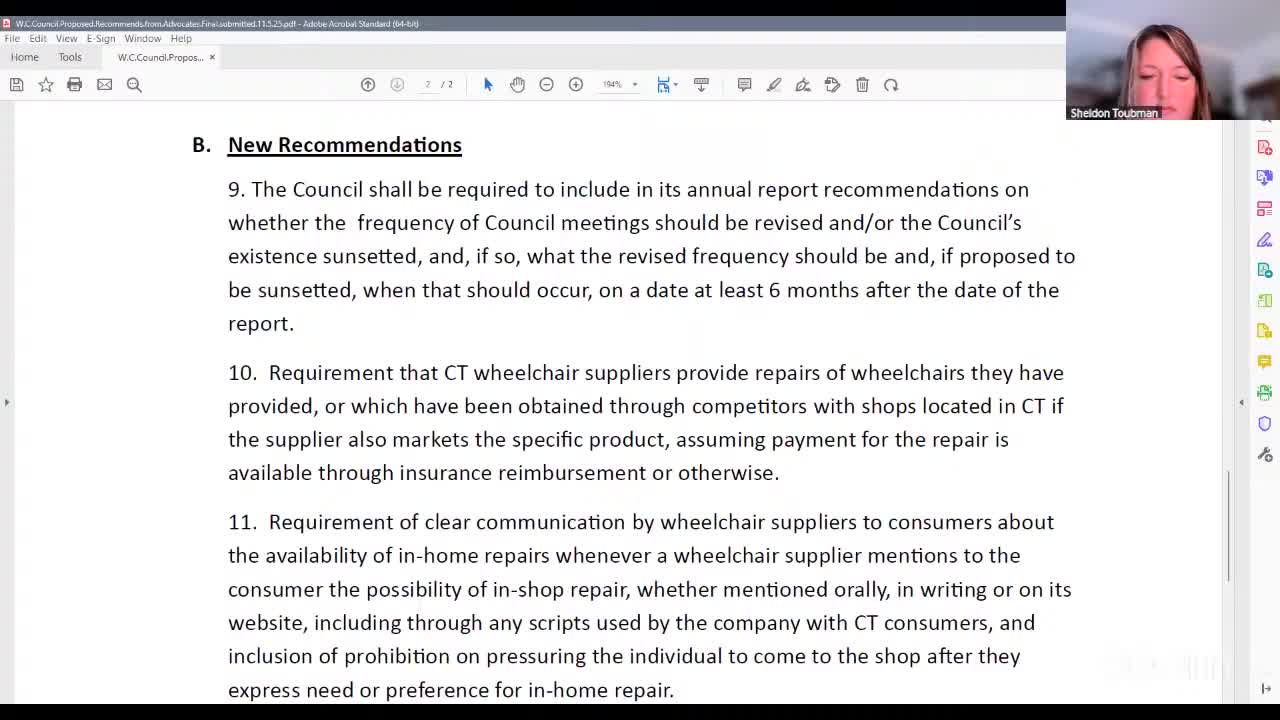Providers warn mandatory "must-service" rules and stagnant rates could thin Connecticut's wheelchair repair market
Get AI-powered insights, summaries, and transcripts
Subscribe
Summary
Industry representatives told the advisory council that requirements to accept repairs for devices sold by other vendors, proposals to expand preventive maintenance, and years without Medicaid rate increases could push firms out of the market and reduce capacity.
Providers on the wheelchair repair advisory council warned that prescriptive statutory requirements to force servicing of equipment sold by other vendors could shrink the pool of available suppliers and reduce access for consumers.
Industry members described a shrinking market driven by low reimbursement and administrative burdens. "Connecticut Medicaid has not had a rate increase in over... 8 years," one provider representative said, adding that labor and supply costs have risen while fee schedules have remained static. Several suppliers said they are increasingly declining higher-maintenance product lines and that competitive bidding or reduced reimbursement could further narrow choices for consumers.
The group debated draft language that would require a supplier to repair devices only if the supplier had originally supplied that product line and if insurance payment was available; proponents argued the change protects consumers from out-of-state "fly-by-night" vendors, while some providers said even that limited mandate could be interpreted as forcing service in capacity-constrained circumstances.
Members agreed to include a summary of reimbursement concerns and provider capacity pressures in the annual report for legislators and agencies to review, but industry representatives opposed adding new statutory mandates that remove the ability to defer service when a provider lacks capacity or appropriate contractual arrangements.
Ending: Committee staff will include a short summary of reimbursement and capacity issues in the annual report; members asked for follow-up conversations with legislators and the state Department of Social Services about potential rate and procurement pressures.
